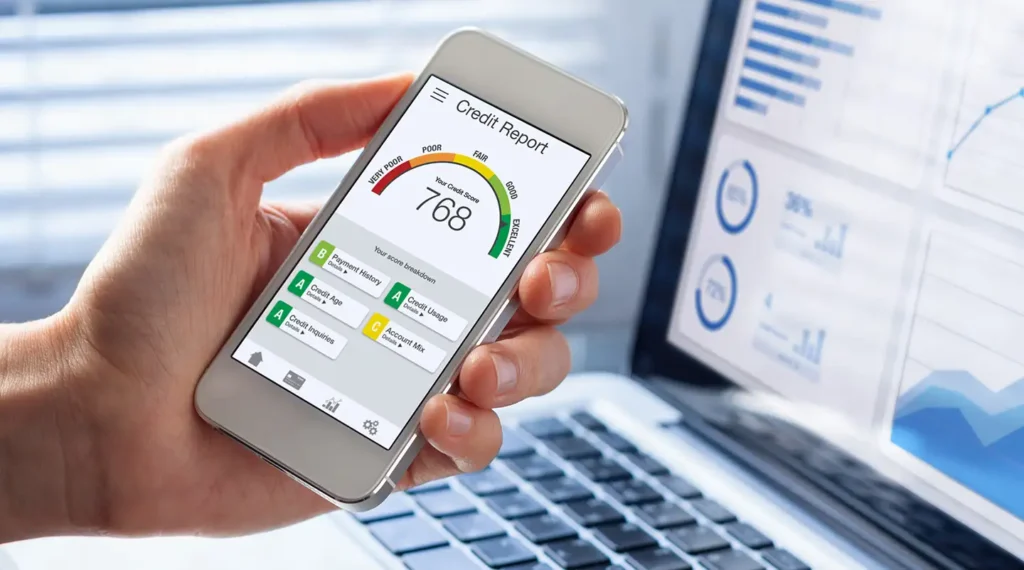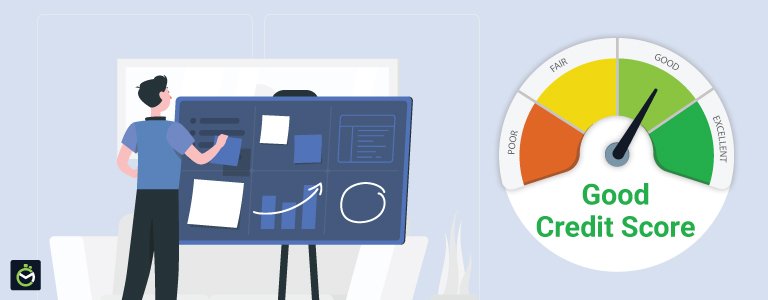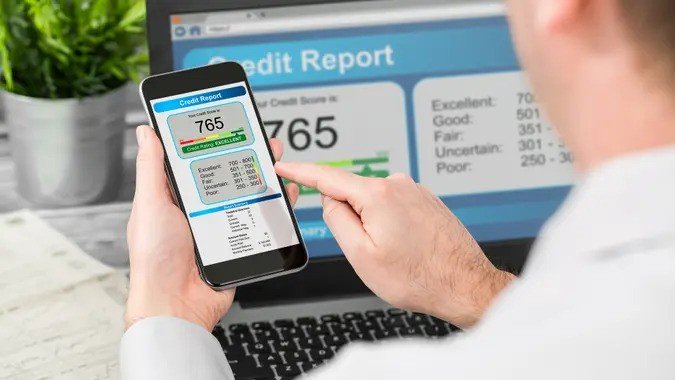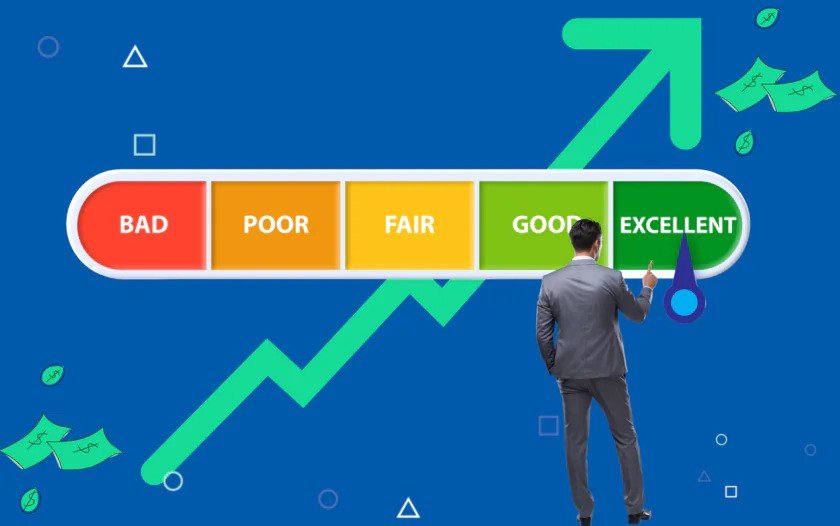In today’s financial landscape, your credit score plays a pivotal role in shaping various aspects of your life. Whether you’re applying for a mortgage, securing a personal loan, or signing up for a credit card, your credit score directly influences the terms and interest rates you receive. Maintaining a healthy credit score is essential for achieving financial stability and accessing opportunities.
Checking your credit score online is not only convenient but also a safe and reliable way to stay informed about your financial health. By regularly monitoring your credit, you can identify discrepancies, track improvements, and take proactive steps to enhance your financial standing.

Understanding Your Credit Score
What Is a Credit Score and Why Does It Matter?
Your credit score is a numerical representation of your creditworthiness, determined by your credit history. This three-digit number is critical when applying for financial products such as loans, credit cards, or even housing. Lenders, landlords, and financial institutions use your credit score to assess the risk of lending to you.
A high credit score can lead to lower interest rates and better terms, while a low score may limit your options. For instance, individuals with a history of late payments or high credit utilization often face higher interest rates from utility companies. On the other hand, maintaining positive payment history and keeping your financial accounts in good standing can help improve your credit score.
In essence, your credit score affects more than just your borrowing power—it impacts vital aspects of your life, from purchasing a home to securing a job.
The Components of Your Credit Score
Understanding the factors that contribute to your credit score can help you make informed decisions to improve it. These components include:

- Payment History: This accounts for 35% of your credit score and reflects whether you’ve paid bills on time. Positive payment history boosts your score, while late payments have a detrimental effect.
- Credit Utilization: This measures how much of your available credit you’re using. Keeping your utilization below 30% is recommended to maintain a healthy credit profile.
- Length of Credit History: The longer your credit history, the better. It shows lenders that you have experience managing credit.
- Credit Mix: Having a diverse range of accounts, such as credit cards and loans, can positively influence your score.
- New Credit Inquiries: Frequent applications for credit can lower your score temporarily, so it’s wise to limit unnecessary inquiries.
Monitoring your credit report is crucial to spot inaccurate information that might negatively impact your score. Tools like secured credit cards or becoming an authorized user on someone else’s account can also help build or improve your credit history.
By understanding these components, you can take targeted steps to strengthen your financial foundation and achieve your goals.
Preparing to Check Your Credit Score Online
What You Will Need to Get Started
Before you begin checking your credit score online, ensure you have all the necessary information on hand. Key details include your social security number, taxpayer identification number, and bank account information for verifying your identity and accessing your credit information.

You may also need additional documents such as a driver’s license, recent utility bills, or other forms of identification. These can further confirm your identity if required by the platform.
It’s crucial to prioritize the security of your personal information to prevent identity theft. Only share sensitive data on trusted, secure websites to avoid potential risks. Taking these precautions ensures a smooth and secure process for checking your credit score.
Choosing the Right Platform for Checking Your Score
Selecting the right platform is vital to accessing accurate and reliable credit information. Trusted platforms like Credit Karma and the myEquifax Dashboard offer user-friendly experiences and easy access to your credit score.
Credit Karma provides free credit monitoring services and insights from two of the three major credit bureaus, while the myEquifax account dashboard allows you to get a free copy of your credit report directly from Equifax. Both platforms are excellent for staying updated on your financial standing.
Additionally, reputable sites like freeannualcreditreport.com provide access to one free Equifax credit report per year from each of the three major credit reporting agencies. Always verify that the platform is authorized by financial institutions or nationwide credit bureaus to ensure the integrity of your data.
Step-by-Step Guide to Checking Your Credit Score Online
Step 1: Verify Your Identity
To check your credit score online in the United States, verifying your identity is the first step. You’ll need details such as your social security number, date of birth, and potentially your taxpayer identification number. In some cases, platforms may require a recent utility bill or verification from the social security administration to confirm your identity.
Protect your personal information during this process to prevent identity theft. Only use secure and trusted websites when entering sensitive data. Keeping your identity safe ensures a seamless experience while accessing your credit score.
Step 2: Access Your Credit Score Through a Trusted Website
Choose a reputable website to access your credit score securely. Trusted platforms include nationwide credit bureaus like Equifax, Experian, and TransUnion. For instance:
- The myEquifax Dashboard allows you to get a free monthly Equifax credit report and view your credit details.
- Credit Karma offers free credit monitoring and insights from two bureaus.
- FreeAnnualCreditReport.com provides a free copy of your credit report once a year from each bureau.
If you prefer a physical copy, you can submit a written request to one of the bureaus. These tools ensure access to accurate equifax credit reports and help you stay informed about your financial standing.
Step 3: Understanding Your Credit Score Report
A credit score report contains key sections to help you interpret your financial health:
- Personal Information: Ensure details like your name and address are accurate.
- Credit Accounts: Review accounts reported by credit card companies or lenders.
- Payment History: Verify that all reported payments are correct.
- Inquiries: Monitor how often lenders check your credit file.
Be vigilant for inaccurate information that might lower your score. Errors in your credit reporting could result in unfavorable lending terms. If you spot inaccuracies, dispute them promptly with the relevant bureau.
Improving Your Credit Score
Tips for Improving Your Score Over Time
Boost your credit score by adopting these strategies:

- Pay off rent payments and utility bills on time.
- Use a secured credit card to build a positive credit history.
- Maintain a low credit utilization rate and monitor your score regularly.
These steps establish strong financial habits and improve your overall credit profile.
Common Mistakes to Avoid
Avoid these pitfalls to maintain a healthy credit score:
- Making late payments on loans or credit cards.
- Maxing out credit lines or exceeding recommended utilization.
- Ignoring errors in your credit report that may harm your score.
Routinely check free annual credit reports to stay on top of your credit history and prevent surprises.
Conclusion
Regularly checking your credit score online is an essential part of financial management. By staying informed, you can take control of your credit and make smarter decisions in areas that impact aspects of your life, such as housing and loans.
Question
Can checking my credit score online impact it negatively?
No, checking your credit score online does not negatively affect it. This is because most platforms use soft inquiries, which don’t impact your credit score. Regularly reviewing your free credit report helps you identify and address potential errors in your credit file without any downside.
How often should I check my credit score?
You should check your credit score monthly or before applying for major credit. Tools offering a free monthly vantagescore allow you to stay updated on your credit report regularly. Additionally, ensure you’re aware of updates from credit card companies or when obtaining a free copy of your credit report.
Is it safe to check my credit score online?
Yes, it’s safe to check your credit score online when using reputable platforms like Equifax or Experian. These platforms follow strict guidelines from the social security administration to protect your credit information. Always safeguard your personal information to avoid risks such as identity theft.
What do I do if I find an error in my credit report?
If you discover inaccurate information in your credit report, file a dispute with the relevant credit bureau. You can request corrections by submitting a written request or using the online dispute process provided by the bureau.
Can I check my credit score for free?
Yes, you can check your credit score for free using tools like the myEquifax dashboard or Credit Karma. These platforms also offer free monthly VantageScore updates and insights into your Equifax Core Credit data, including Equifax data reports.
